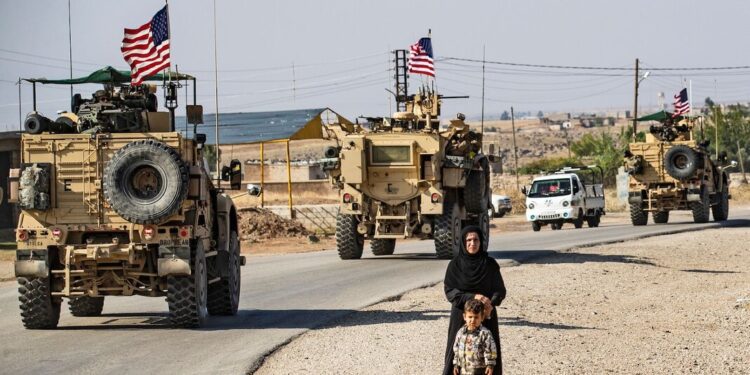The United States and Iraq have officially embarked on talks to decide the future of the long-standing US-led military coalition in Iraq. The primary objective of these discussions is to establish a clear timetable for the phased withdrawal of troops, potentially bringing an end to the coalition’s mission that has persisted since the US invasion of Iraq in 2003.
The US initially withdrew combat forces from Iraq in 2011, but a resurgence in violence led to the redeployment of troops in 2014 to assist the Iraqi government in its fight against the Islamic State of Iraq and Syria (ISIS). Over the years, the presence of US forces has become a contentious issue, drawing criticism from factions within Iraq aligned with Iran and influencing the country’s political landscape.
Iraq’s Ministry of Foreign Affairs released a statement outlining its objectives for the talks. The Iraqi government aims to formulate a specific and transparent timetable detailing the duration of the presence of international coalition advisors in Iraq. Additionally, they seek to initiate a gradual and intentional reduction of advisors on Iraqi soil, ultimately leading to the conclusion of the coalition mission.
The statement emphasizes Iraq’s commitment to ensuring the safety of international coalition advisors throughout the negotiation period and maintaining stability to prevent any escalation. It underscores the country’s resolve to handle the situation responsibly, showcasing a willingness to cooperate with coalition members.
US Secretary of Defense Lloyd Austin, in response to Iraq’s statement, affirmed that the discussions would be conducted as part of a broader military commission established in August 2023. This commission was formed before the outbreak of the conflict in Gaza on October 7, underscoring the importance of addressing regional challenges through diplomatic channels.
The talks are expected to focus on the transition towards an enduring bilateral security partnership between Iraq and the United States. While Iraq asserts that ISIS is defeated, it remains interested in exploring bilateral relations with coalition members, including military cooperation in training and equipment.
The coalition’s presence has been a source of instability, marked by near-daily attacks by Iran-backed armed groups on bases housing coalition forces and retaliatory strikes by the US. The ongoing conflict in Gaza has intensified these attacks, prompting Iraq to seek a resolution to reduce tensions and secure its stability.
As the negotiations unfold, both US and Iraqi officials anticipate a lengthy process, with the outcome remaining uncertain and no immediate withdrawal of US forces on the horizon. Washington is cautious about a rapid withdrawal, fearing it could create a security vacuum that might be exploited by Iran or ISIS, potentially compromising regional stability. The talks mark a significant step towards addressing the complex dynamics surrounding the US-led coalition in Iraq and fostering a more stable and cooperative future.
















